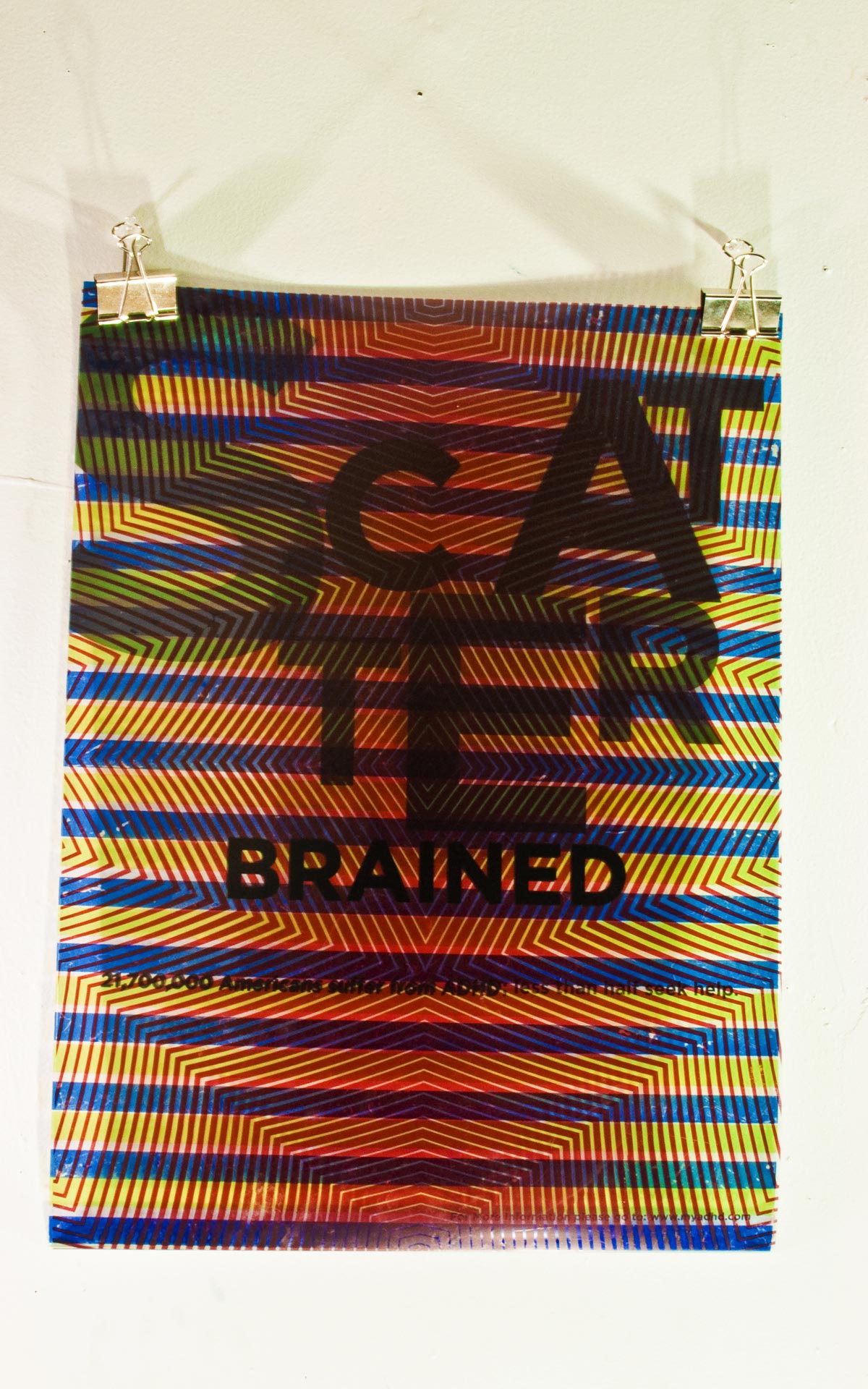OCD Awareness Campaign
3,000,000 Americans struggle with Obsessive Compulsive Disorder Every Day.
Obsessive Compulsive Disorder (OCD) is disorder of the brain and behavior. OCD causes severe anxiety in those affected. OCD involves both obsessions and compulsions that take a lot of time and get in the way of important activities the person values. When scientists compare pictures of the brains of groups of people with OCD, they can see that some areas of the brain are different than the brains of people who don’t have OCD. Those tortured with OCD are desperately trying to get away from paralyzing, unending anxiety.
Each of the squares in the video are 1 inch by 1 inch, and took anywhere from 4 - 12 hours to align on the grid.
Final Posters are 2ft x 3ft
Full Video (7 min)
Gambling Addiction Campaign
This is a Marketing Campaign to spread awareness about the dangers of compulsive gambling.
The text reads "20% of Gambling Addicts will try to Commit Suicide."
Compulsive gambling, also called gambling disorder, is the uncontrollable urge to keep gambling despite the toll it takes on your life. Gambling means that you're willing to risk something you value in the hope of getting something of even greater value.Gambling can stimulate the brain's reward system much like drugs such as alcohol can, leading to addiction. If you're prone to compulsive gambling, you may continually chase bets, hide your behavior, deplete savings, accumulate debt, or even resort to theft or fraud to support your addiction.Compulsive gambling is a serious condition that can destroy lives. Although treating compulsive gambling can be challenging, many compulsive gamblers have found help through professional treatment.
-Mayo Clinic Staff
Physical Mockups
I created these double sided 2ft x 3ft cards as an art concept while in college.
ADHD Awareness Campaign
21,700,000 Americans suffer from ADHD; less than half seek help.
Attention-deficit hyperactivity disorder (ADHD) is a medical condition characterized by difficulties with inattention or hyperactivity and impulsivity. Symptoms of inattention, or hyperactivity and impulsivity must be severe enough to cause impairment in the daily functioning of the person in at least two settings: at home, in school, in the community or in the workplace.
ADHD affects a person’s ability to regulate behavior and attention. Students with ADHD often have problems sustaining attention, controlling hyperactivity and managing impulses. The brain is responsible for self-regulation–planning, organizing and carrying out complex behavior. These are called “executive functions” of the brain. Executive functions refer to the variety of functions within the brain that activate, organize, integrate and manage other functions.
Prints are made up of 3 layers of ink printed on acetate, each measuring 18in by 24in.









